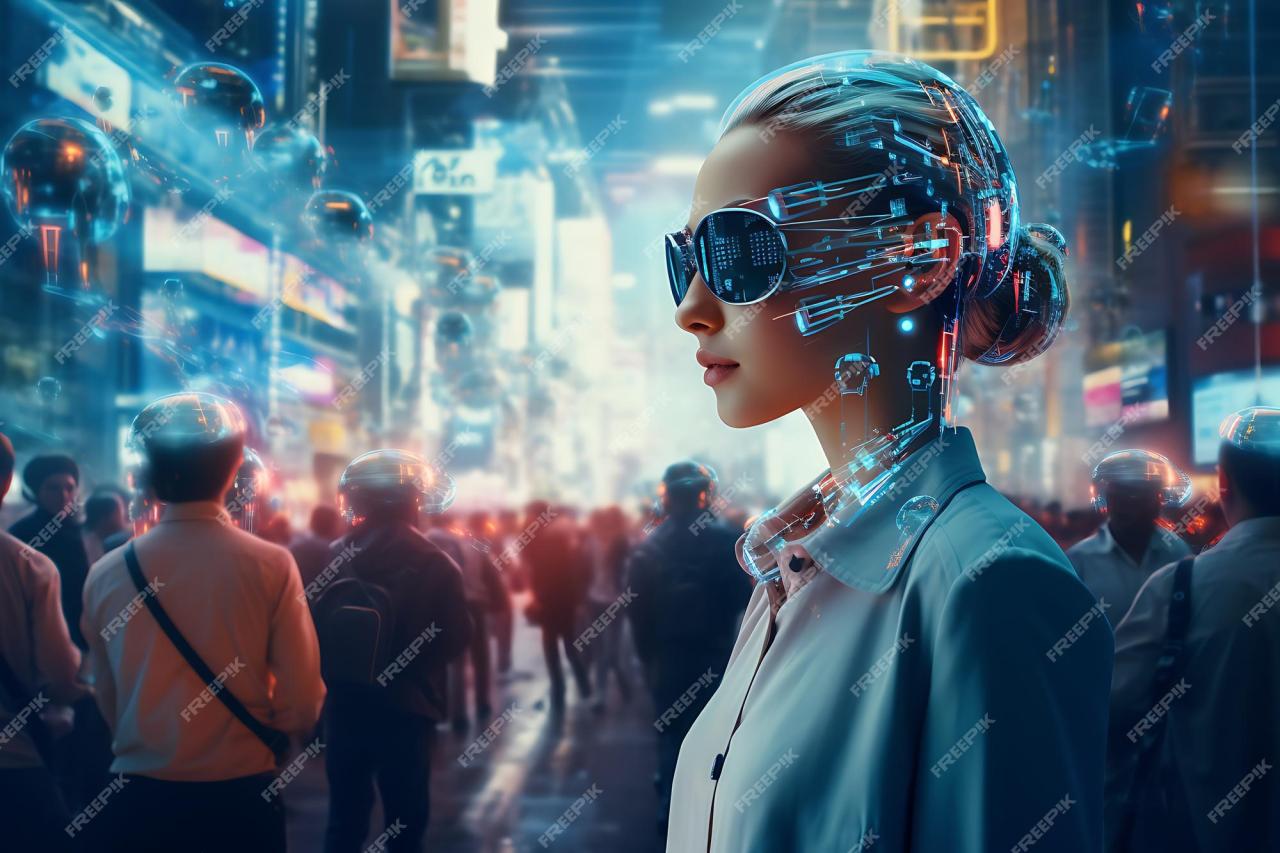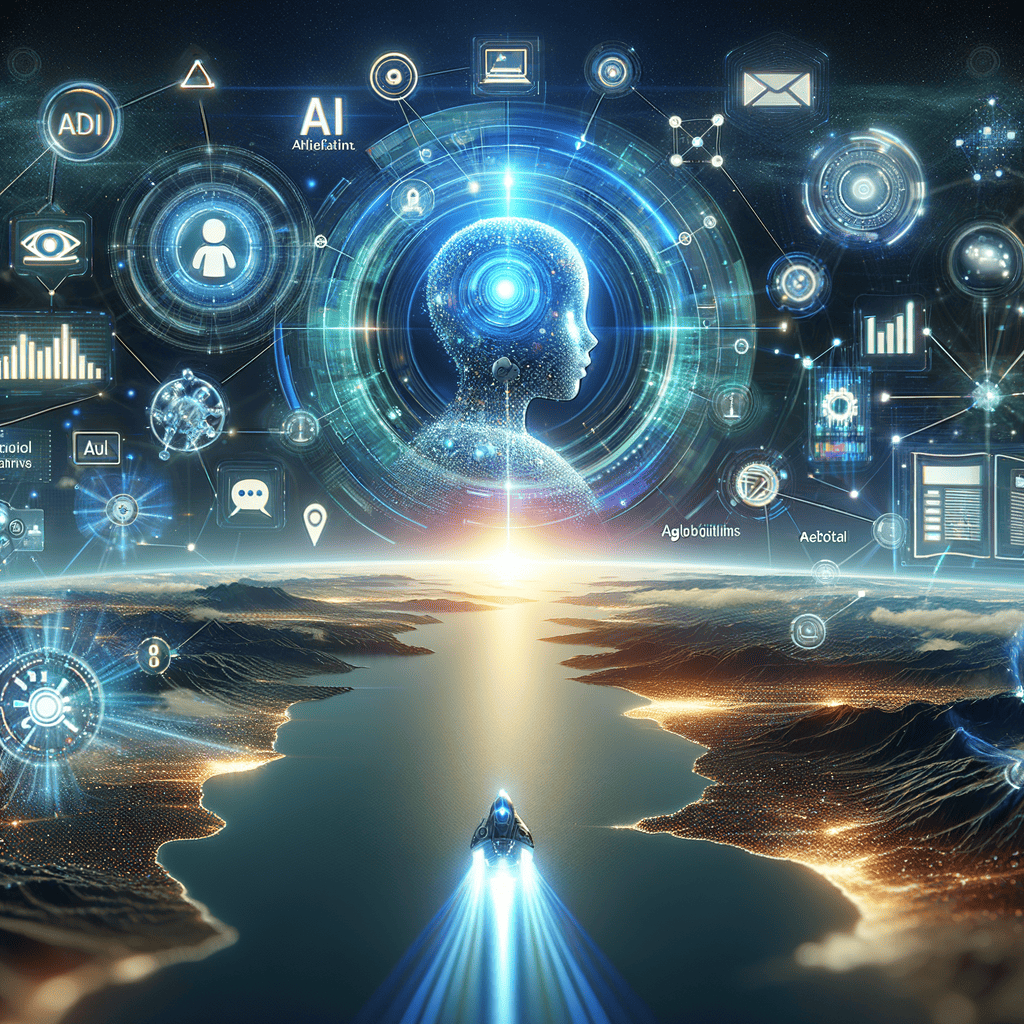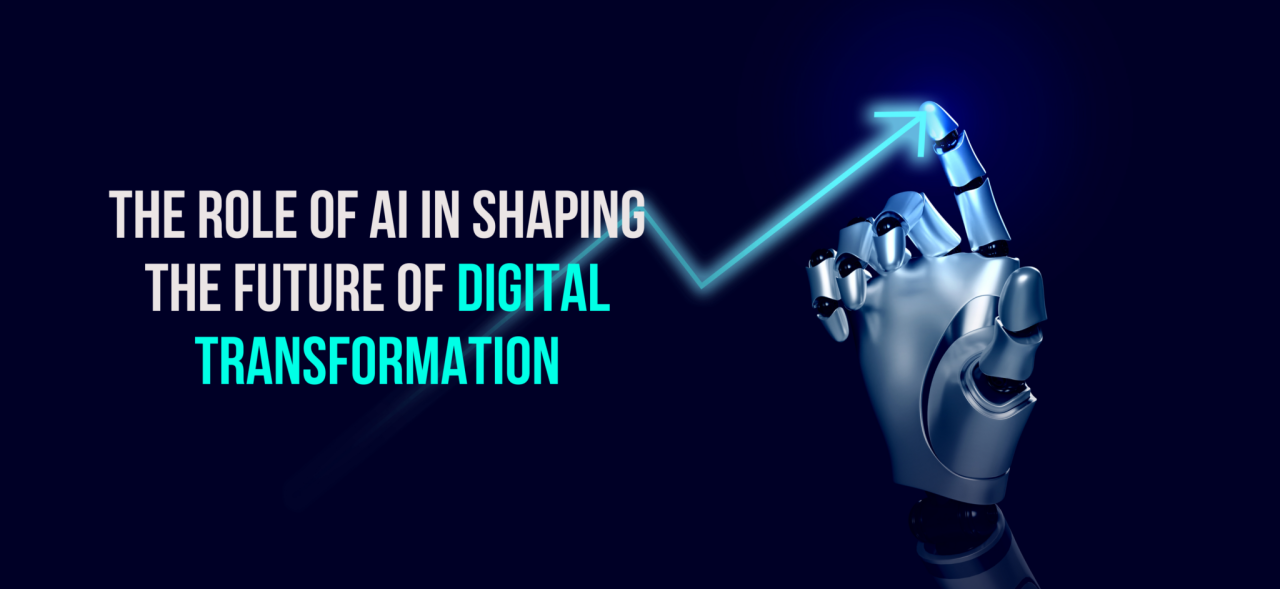How AI is shaping the future of digital lifestyle: A Comprehensive Guide

Delving into How AI is shaping the future of digital lifestyle, this introduction immerses readers in a unique and compelling narrative. AI is no longer just a buzzword; it's actively influencing how we live, work, and interact in the digital realm.
From personalized recommendations to smart home automation, AI is revolutionizing the way we experience technology on a daily basis. Let's explore the exciting possibilities that AI brings to our digital lifestyles.
Overview of AI in digital lifestyle

AI, or artificial intelligence, plays a crucial role in shaping the future of digital lifestyle by enabling smart solutions that enhance user experiences and streamline processes. From personalized recommendations to voice assistants, AI applications are revolutionizing how we interact with digital products and services.
AI Applications Shaping Digital Lifestyle
- Virtual Assistants: AI-powered virtual assistants like Siri, Alexa, and Google Assistant provide personalized assistance, manage tasks, and offer information based on user queries.
- Recommendation Systems: Algorithms driven by AI analyze user behavior to suggest relevant content, products, or services, enhancing user engagement and satisfaction.
- Smart Home Devices: AI enables devices to learn user preferences, automate tasks, and adjust settings for comfort and convenience, transforming living spaces into smart environments.
Impact of AI on User Experience
AI enhances user experience in digital products and services by analyzing data and predicting user preferences, leading to personalized interactions, seamless navigation, and efficient problem-solving. By understanding user behavior and adapting to individual needs, AI improves overall satisfaction and engagement.
Role of AI in Personalization and Customization
- Personalized Content: AI-driven algorithms deliver tailored content, recommendations, and advertisements based on user preferences, demographics, and past interactions.
- Customized Experiences: AI enables customization of interfaces, features, and services to match individual preferences, creating a unique and engaging digital experience for each user.
AI-powered virtual assistants

Virtual assistants powered by AI have revolutionized the way we interact with technology, enhancing our digital lifestyle in various ways. These intelligent programs are designed to assist users with tasks, provide information, and streamline daily activities, ultimately improving productivity and convenience.
Role of Virtual Assistants in Shaping Digital Lifestyle
AI-powered virtual assistants play a crucial role in shaping our digital lifestyle by providing personalized assistance and automating routine tasks. These assistants can manage schedules, set reminders, answer queries, and even control smart home devices, creating a seamless and efficient user experience.
Comparison of AI-powered Virtual Assistants
- Amazon Alexa: Known for its wide range of skills and compatibility with smart home devices.
- Google Assistant: Utilizes Google's vast knowledge graph to provide accurate and context-aware responses.
- Apple Siri: Integrated into Apple's ecosystem, Siri offers voice-controlled features across various Apple devices.
Benefits of Using Virtual Assistants for Daily Tasks and Productivity
- Time-saving: Virtual assistants can automate tasks like setting reminders, sending emails, and managing calendars, freeing up time for more important activities.
- Enhanced productivity: By providing quick access to information and performing tasks efficiently, virtual assistants help users stay organized and focused.
- Accessibility: Virtual assistants offer hands-free interaction, making it easier for users with disabilities to access technology and information.
Future Trends of Virtual Assistants and Integration in Various Devices
Virtual assistants are expected to become even more integrated into various devices, including wearables, cars, and household appliances. The future trends indicate advancements in natural language processing, increased personalization, and seamless connectivity across different platforms, making virtual assistants an indispensable part of our digital lifestyle.
AI in smart homes and IoT
AI technology is revolutionizing the way we interact with our living spaces through smart home devices and IoT integration. By leveraging artificial intelligence, homes are becoming more efficient, convenient, and secure.
Transforming Smart Home Technologies
- AI-powered smart thermostats can learn user preferences and adjust temperature settings accordingly, optimizing energy usage.
- Smart lighting systems equipped with AI can adjust brightness and color based on natural light levels and user habits, enhancing ambiance and reducing energy consumption.
- AI-driven home security cameras can detect unusual activity and send alerts to homeowners, enhancing overall safety and peace of mind.
Challenges and Opportunities
- Challenges: Privacy concerns arise with the collection of personal data for AI algorithms, potential system vulnerabilities to cyber attacks, and the need for seamless integration among various smart devices.
- Opportunities: AI opens up possibilities for predictive maintenance of home appliances, personalized recommendations for users, and remote monitoring and control of devices.
Revolutionizing Smart Living
- AI is predicted to further revolutionize smart living by enabling more intuitive voice-controlled interfaces, proactive energy management systems, and enhanced personalization of home environments.
- Integration of AI with IoT devices will lead to seamless automation of tasks, improved energy efficiency, and increased overall comfort and convenience for homeowners.
AI in entertainment and media consumption

Artificial Intelligence (AI) has significantly impacted the entertainment and media industry, revolutionizing how content is recommended, created, distributed, and consumed.
Personalized Content Recommendations
AI algorithms analyze user behavior, preferences, and patterns to provide personalized content recommendations across various media platforms. By utilizing machine learning techniques, AI can tailor suggestions to individual tastes, increasing user satisfaction and engagement.
Creation and Distribution of Digital Content
AI is transforming the creation and distribution of digital content by automating tasks such as video editing, music composition, and even scriptwriting. Content creators can leverage AI tools to streamline production processes, enhance creativity, and reach broader audiences through targeted distribution strategies.
Enhancing User Engagement and Interaction
In entertainment platforms, AI technologies like chatbots and recommendation systems improve user engagement by providing interactive experiences and personalized interactions. By understanding user preferences and behaviors, AI can create immersive and customized content that resonates with audiences, fostering deeper connections and loyalty.
Ethical Implications of AI in Media Consumption
As AI algorithms increasingly influence media consumption patterns, ethical considerations arise regarding data privacy, bias, and the manipulation of information. It is crucial for industry stakeholders to address these ethical implications, ensuring transparency, fairness, and accountability in AI-driven content recommendations and decision-making processes.
Wrap-Up
In conclusion, the future of digital lifestyle is undeniably intertwined with AI. As we continue to witness advancements in virtual assistants, smart home technologies, and entertainment media, it's clear that AI is here to stay. Embracing these changes and understanding the ethical implications will be crucial as we navigate this AI-driven future.
Helpful Answers
How is AI impacting user experience in digital products and services?
AI is enhancing user experience by personalizing content, improving recommendations, and streamlining processes to make interactions more efficient and tailored to individual preferences.
What are some challenges of integrating AI in smart homes?
Some challenges include data privacy concerns, interoperability issues with different devices, and the potential for AI malfunctions affecting the security and functionality of smart home systems.
How does AI revolutionize the creation and distribution of digital content in entertainment and media?
AI algorithms analyze user preferences and behaviors to deliver personalized content recommendations, optimize streaming services, and even generate original content like music and articles based on trends and user data.

